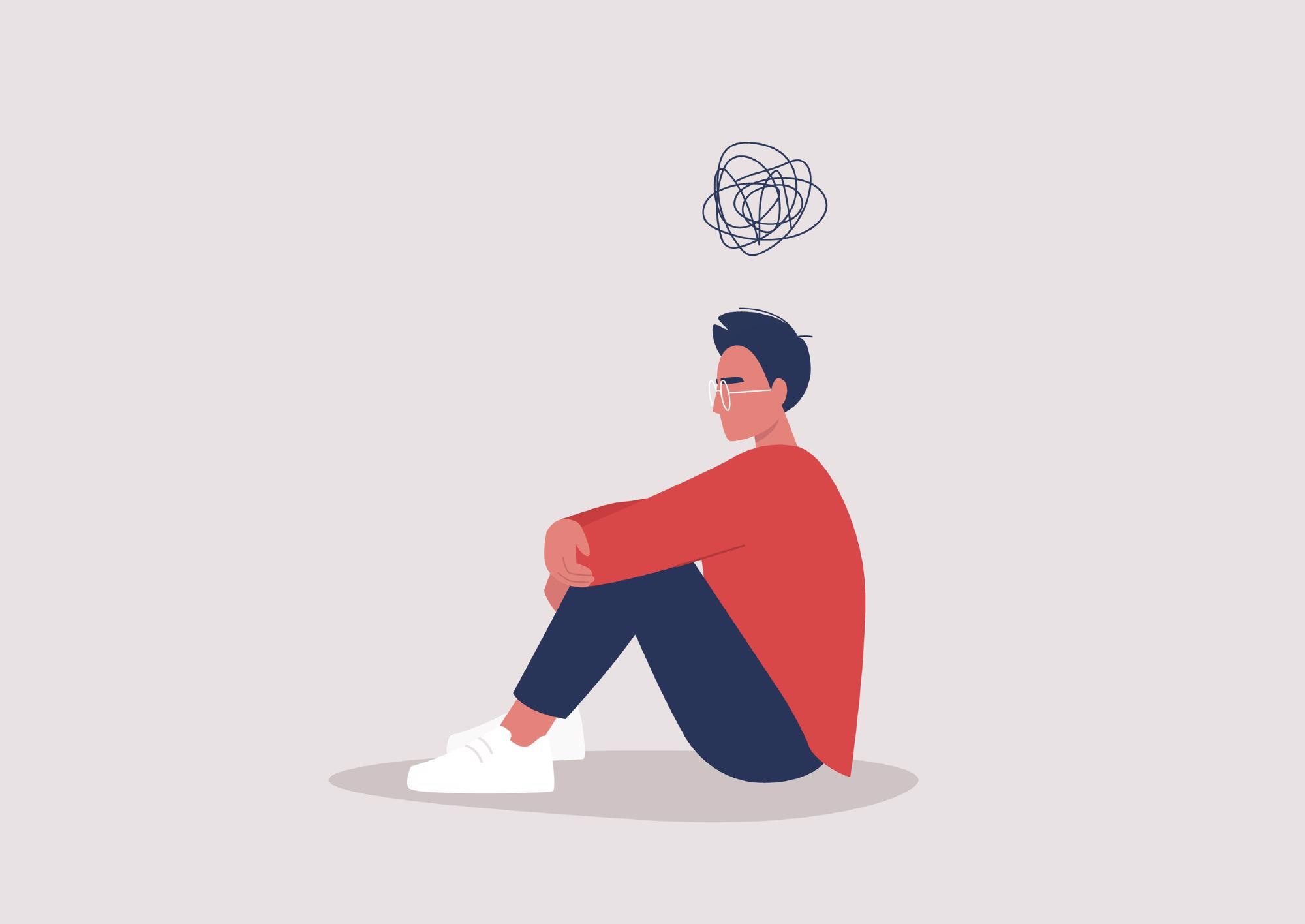Mental health is among the most essential requirements for well-being and high quality of life. The symptoms of mental illness may appear different in men and women, making it a challenge to diagnose some mental conditions in men compared to women.

Male mental health. Image Credit: Chinnapong/Shutterstock.com
With depression, for instance, men may be angry or irritable and may be extremely reluctant to seek help, thinking of it as a weakness and not an illness.
Risk factors for mental health in men
Several things can trigger mental ill-health in men, including separation, divorce and other relationship problems; financial stress; pressures at or associated with the workplace; not having productive or paying work; illness; isolation; becoming a father; and drug or alcohol abuse.
Types of mental health issues in men
Post-traumatic stress disorder (PTSD) is known to occur in a significant proportion of people who have witnessed war, violence or other dangerous events. It can result in distrust, frequent flashbacks to the distressing event, nightmares, emotional detachment or numbness, and suicidal ideation. Approximately 60% of men have a history of such events in their lives.
However, where women frequently become anxious or jittery as a result, men tend to lash out and become aggressive or take to drinking or drug abuse.
Depression is common among men and women. Both sexes complain of overwhelming sadness and irritability for most of the time, on most days of the week. Along with this, they have difficulty in focus, over-sleeping or insomnia, isolating oneself from others who were formerly close, appetite changes, somatic symptoms and feelings of guilt, hopelessness and poor self-worth. Suicidal thoughts and a general loss of interest in life are also commonplace in these patients.
Depression in men is reported less commonly than in women, who account for the majority of cases. Even so, up to a tenth of men have symptoms of depression and anxiety, but only one in two of these men sought help. Men with depression tend not to speak about it or to disclose their suicidal thoughts, even a little. As with PTSD, they turn into angry or aggressive people instead.
Body image disorders or eating disorders in men also affect them differently from women. Men with an eating disorder are obsessive about counting calories and may work out excessively. With body dysmorphia disorder (BDD), men may pay excessive attention to their muscle development, the size of their sex organs, their hair, or skin, these being uncommon foci of attention for women.
Bipolar depression includes the symptoms of depression, but also of mania, when the person becomes highly euphoric and feels very energetic. During this phase, easy distractibility, excessive talking, increased speed of thoughts and words, wakefulness for days together, building grandiose plans, and displaying risky behavior. Men tend to show problems with relationships, work, sex and money, and this may be reflected in angry behavior, substance abuse or suicidal ideation.
Binge drinking is twice as common in men, and drinking is related to higher rates of associated hospitalizations and deaths in men than in women. Alcohol is more frequently used by men before committing suicide.

Male mental health. Image Credit: Nadia Snopek/Shutterstock.com
Differences with Mental Illness in Men
Mental illness in a man can be deadly. It affects almost every activity of daily living, work, relationships, personal appearance, and multiple areas of health.
Why do men speak less about mental illness? One reason is that men hate to admit weakness. Having to tell someone else, even a therapist, about feeling depressed most of the time is tantamount to being too weak to handle their own problems, for men. They feel, perhaps rightly, that just as they would judge one of their own for describing such symptoms, they themselves will be judged – by their friend, their therapist, their pharmacist, and anyone else who might come to know the truth.
But the truth is that mental illness is an illness that cannot be cured simply by wishing it away or ignoring it. It eats away at one’s ability to live normally, causes deterioration of one’s productivity, sanity and finally will to live, in the most extreme cases.
In fact, suicide is four times more common among men than women, and is currently rising in the USA, even though it is already among the leading causes of death. About 84% of suicides with a history of mental illness occurred among men. This emphasizes the need to get a proper diagnosis and appropriate treatment, by professionals trained to treat mental health problems.
Management
Managing men with mental health issue includes encouraging them to bring up disturbing symptoms, and help them find alternative ways to express their sad and vulnerable feelings such as taking a time out, deep breathing or simply counting to 10.
Stress management, self-care, healthy habits, arranging for regular times away from stressful situations such as caring for sick people, and ensuring that they do not hurt themselves or other people during acute episodes are key aspects of caring for these men. Weapons and ammunition should be removed from the house in this case, to be stored in a secure place without access by the man in question, to be returned once things stabilize.
As one expert explains, “We need to talk openly about mental health. Suffering in silence isn’t a safe or healthy option for the men in our lives.” Asking men how they feel during times of great stress or change, watching for behavioral alterations and symptoms of mental illness, support, and getting them to share their feelings with trained professionals, are important steps to getting down the rate of suicide and of general misery among men due to mental health issues.
References
Further Reading